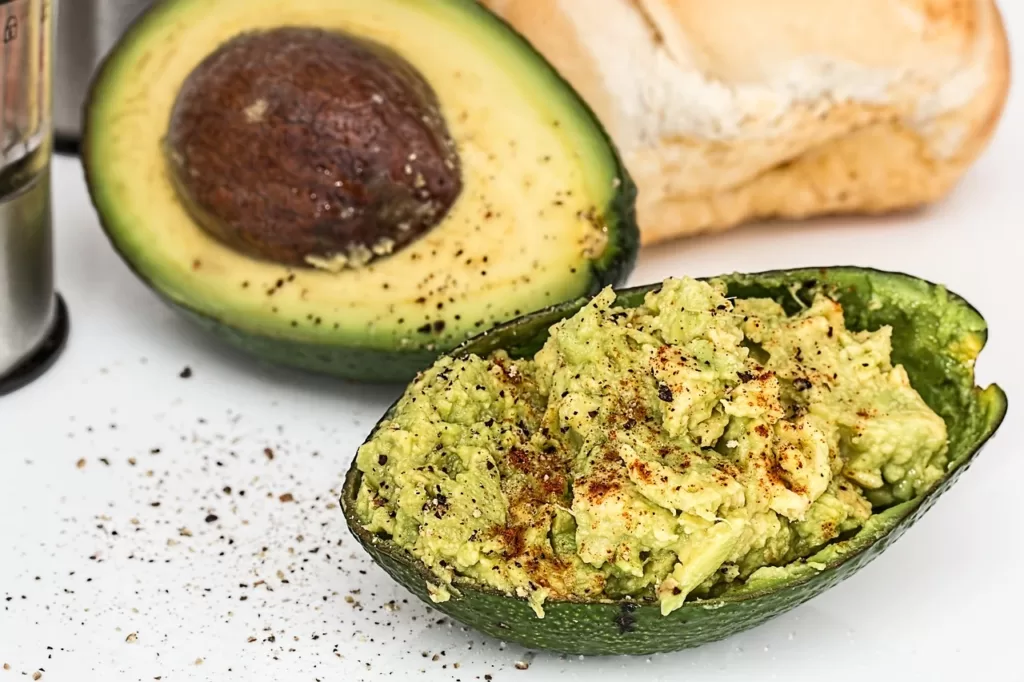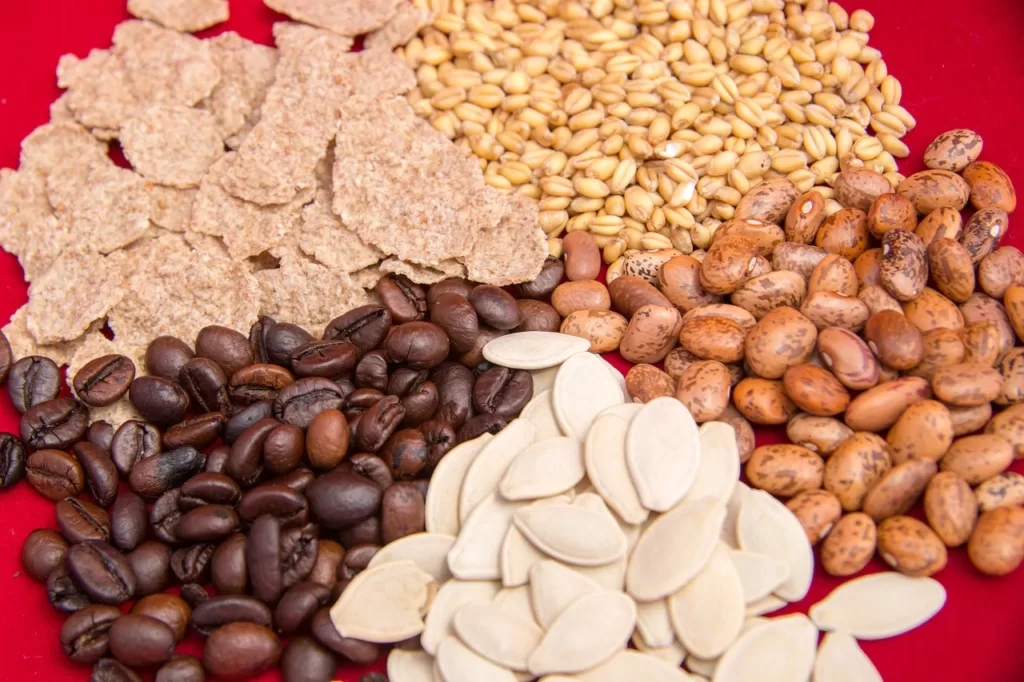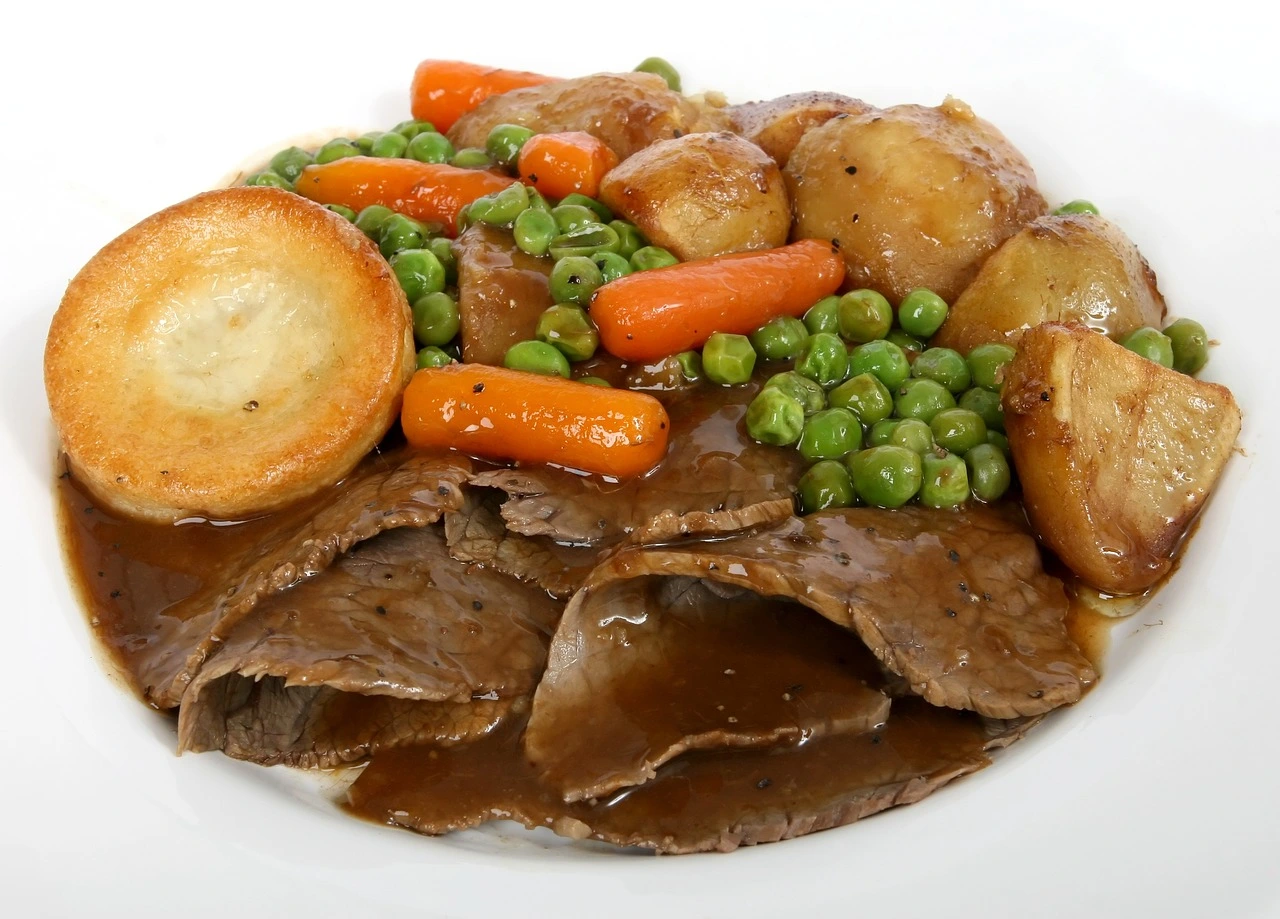Introduction
Maintaining a balanced diet is essential for a healthy and vibrant life. While fats have often been viewed negatively, it’s crucial to understand that not all fats are bad for you. In fact, some fats are essential for various bodily functions and play a significant role in supporting overall health. In this comprehensive guide, we will explore the top 10 healthy fats that you should include in your diet to promote well-being and vitality.
Table of Contents
1. Avocado: Nature’s Creamy Goodness

Image by Steve Buissinne from Pixabay
Avocado, often referred to as “nature’s butter,” is a delicious and nutritious fruit packed with healthy monounsaturated fats. These fats are heart-friendly and help reduce bad cholesterol levels, promoting cardiovascular health. Additionally, avocados are rich in fiber, vitamins, and minerals, making them a perfect choice for a well-rounded diet.
2. Nuts and Seeds: Nature’s Energy Packed Fats
Nuts and seeds are a powerhouse of healthy fats, including polyunsaturated and monounsaturated fats. Almonds, walnuts, chia seeds, and flaxseeds are excellent sources of omega-3 fatty acids, known for their anti-inflammatory properties and brain-boosting benefits. Including a handful of these nuts and seeds in your daily diet can do wonders for your heart and brain health.
3. Olive Oil: Liquid Gold for Your Health
Olive oil is a staple in Mediterranean cuisine and renowned for its health benefits. Rich in monounsaturated fats, it helps reduce the risk of heart disease and inflammation. Drizzling extra-virgin olive oil over salads or using it for light cooking not only adds a burst of flavor but also provides numerous health benefits.
4. Fatty Fish: Omega-3 Rich Seafood
Fatty fish such as salmon, mackerel, and trout are loaded with omega-3 fatty acids, which are vital for brain function and heart health. Omega-3s also possess anti-inflammatory properties, benefiting those with joint issues or chronic inflammation. Including fatty fish in your diet at least twice a week can make a significant impact on your overall well-being.
5. Coconut: The Versatile Superfood
Coconut and its derivatives, like coconut oil and coconut milk, are a rich source of medium-chain triglycerides (MCTs). MCTs are easily digestible and quickly converted into energy, making them an excellent choice for those following a ketogenic diet or looking to boost their energy levels.
6. Chia Seeds: Tiny Seeds, Massive Benefits
Chia seeds have gained popularity in recent years, and for a good reason. These tiny seeds are brimming with omega-3s, fiber, protein, and essential minerals like calcium and magnesium. They promote digestive health, aid in weight management, and help regulate blood sugar levels, making them an excellent addition to your diet.
7. Dark Chocolate: Indulgence with Health Benefits
Yes, you read that right! Dark chocolate, when consumed in moderation, can be a delightful source of healthy fats. It contains monounsaturated fats and antioxidants that support heart health and may improve brain function. Opt for dark chocolate with a higher cocoa content for the most benefits.
8. Eggs: Nutrient-Packed Powerhouses
Eggs are a nutrient-dense food, providing a range of vitamins, minerals, and healthy fats, including omega-3s. Contrary to past misconceptions, eggs are not harmful to heart health and can be an integral part of a balanced diet. They offer a complete protein source and can keep you feeling full and satisfied for longer.
9. Grass-Fed Butter: A Nutrient-Rich Delight
Grass-fed butter is a healthier alternative to regular butter, as it contains higher levels of omega-3s and antioxidants. Moderation is key, but incorporating grass-fed butter into your cooking or spreading it on whole-grain toast can be a delectable way to enjoy its benefits.
10. Flaxseeds: A Plant-Based Powerhouse
Flaxseeds are an excellent source of alpha-linolenic acid (ALA), a type of omega-3 fatty acid. They are beneficial for heart health, reducing inflammation, and supporting brain function. Grinding flaxseeds before consumption enhances their digestibility and makes it easier for your body to absorb their nutrients.
Frequently Asked Questions (FAQs)
Are all fats bad for my health?
No, not all fats are bad for your health. Healthy fats, such as monounsaturated and polyunsaturated fats, are essential for various bodily functions and support overall well-being.
How do healthy fats benefit my heart?
Healthy fats, like those found in avocados, nuts, and fatty fish, help improve cholesterol levels and reduce inflammation, contributing to better heart health.
Can I consume too much healthy fat?
While healthy fats are beneficial, they are calorie-dense. Moderation is key, and it’s essential to balance your fat intake with other essential nutrients.
Can I lose weight by incorporating healthy fats into my diet?
Yes, healthy fats can support weight loss efforts by promoting satiety and providing a sustained source of energy, which may reduce unhealthy food cravings.
Are there any vegan sources of healthy fats?
Yes, vegan sources of healthy fats include avocados, nuts, seeds, coconut, and flaxseeds, making it easy for plant-based individuals to incorporate them into their diets.
How can I include healthy fats in my daily meals?
You can include healthy fats by drizzling olive oil on salads, adding avocado slices to sandwiches, using coconut oil for cooking, or snacking on a handful of nuts and seeds.
Conclusion
Incorporating the right fats into your diet is crucial for maintaining a balanced and healthy lifestyle. The top 10 healthy fats mentioned in this article provide an array of benefits, from supporting heart health to boosting brain function. Remember to consume fats in moderation and opt for whole food sources to maximize their nutritional value. Embrace these healthy fats, and embark on a journey to better well-being and vitality.
How to Get the Benefits of Omega-3 Fatty Acids

What are Omega-3 Fatty Acids?
Omega-3 fatty acids are a type of polyunsaturated fat that our bodies cannot produce on their own. Therefore, it is essential to obtain them through dietary sources or supplements. The three main types of Omega-3 fatty acids are EPA (eicosapentaenoic acid), DHA (docosahexaenoic acid), and ALA (alpha-linolenic acid).
Types of Omega-3 Fatty Acids
- EPA (Eicosapentaenoic Acid): EPA is known for its anti-inflammatory properties and is beneficial for heart health.
- DHA (Docosahexaenoic Acid): DHA is a major component of the brain and eyes, making it crucial for cognitive and visual function.
- ALA (Alpha-Linolenic Acid): ALA can be converted into EPA and DHA in the body, but the conversion rate is relatively low.
Importance of Omega-3 Fatty Acids for the Body
Omega-3 fatty acids are vital for maintaining the health of various organs and systems in the body. They support heart health, brain function, joint flexibility, skin elasticity, and even mental well-being.
Food Sources of Omega-3 Fatty Acids
1. Fatty Fish
Fatty fish such as salmon, mackerel, sardines, and trout are excellent sources of EPA and DHA. Regular consumption of these fish can provide you with a healthy dose of Omega-3s.
2. Flaxseeds and Chia Seeds
Flaxseeds and chia seeds are rich in ALA, making them great options for vegetarians and vegans. Sprinkling these seeds on your cereal or yogurt can boost your Omega-3 intake.
3. Walnuts
Walnuts are not only a tasty snack but also a good source of ALA. Incorporating a handful of walnuts into your daily diet can contribute to your Omega-3 levels.
4. Hemp Seeds
Hemp seeds contain a balanced ratio of Omega-3 and Omega-6 fatty acids. They can be added to salads, smoothies, or oatmeal for a nutrient-rich boost.
5. Algal Oil
For those who prefer a plant-based supplement, algal oil is an excellent option as it provides both DHA and EPA derived from algae.
6. Supplements
If it’s challenging to obtain sufficient Omega-3s from your diet, supplements are available in various forms, including fish oil capsules, krill oil, and algal oil capsules.
Health Benefits of Omega-3 Fatty Acids
Omega-3 fatty acids offer an array of health benefits that support different aspects of well-being.
1. Heart Health
Omega-3s help reduce triglycerides and lower blood pressure, reducing the risk of heart disease and stroke.
2. Brain Health
DHA, a major component of the brain, supports cognitive function and may help reduce the risk of age-related cognitive decline.
3. Joint Health
Omega-3s have anti-inflammatory properties that can ease joint pain and stiffness, benefiting those with arthritis.
4. Skin Health
The anti-inflammatory properties of Omega-3s contribute to healthy and radiant skin.
5. Eye Health
DHA plays a crucial role in maintaining eye health and may help prevent age-related macular degeneration.
6. Mental Health
Omega-3s are believed to have a positive impact on mental health, potentially reducing the risk of depression and anxiety.
Omega-3 Fatty Acids and Inflammation

Omega-3 fatty acids are known for their ability to reduce inflammation in the body. Chronic inflammation can lead to various health issues, and Omega-3s can help alleviate this problem.
Omega-3 Fatty Acids for Children and Pregnant Women
Omega-3s are essential for the healthy development of infants and children, particularly for brain and eye development. Pregnant women are also advised to consume adequate Omega-3s to support their baby’s growth.
Omega-3 Dosage and Recommendations
The recommended daily intake of Omega-3 fatty acids varies based on age, gender, and individual health conditions. Consulting a healthcare professional can help determine the appropriate dosage for you.
Tips to Incorporate Omega-3 Fatty Acids into Your Diet
Add Fatty Fish to Your Meals
Including fatty fish in your diet two to three times a week is an excellent way to boost your Omega-3 intake.
Sprinkle Flaxseeds and Chia Seeds
Adding flaxseeds or chia seeds to your meals can increase your Omega-3 consumption.
Snack on Walnuts
Keep a supply of walnuts as a healthy and convenient snack option.
Use Hemp Seeds in Salads and Smoothies
Hemp seeds can add a nutty flavor and Omega-3 goodness to your salads and smoothies.
Consider Algal Oil Supplements
If you follow a vegan diet, algal oil supplements can provide the necessary DHA and EPA.
Cooking with Omega-3 Fatty Acids
Incorporating Omega-3-rich recipes into your daily meals can make it enjoyable to maintain a diet rich in these essential fatty acids.
Precautions and Potential Side Effects
While Omega-3 fatty acids are generally safe for most people, some may experience mild side effects such as bloating or digestive issues. It’s essential to follow the recommended dosage and consult a healthcare professional if you have any concerns.
Interactions with Medications
Omega-3 supplements may interact with certain medications, so it’s essential to inform your doctor about any supplements you are taking.
Allergic Reactions
Individuals with allergies to fish or marine products should exercise caution when using fish oil supplements.
Conclusion
Incorporating Omega-3 fatty acids into your diet is a smart and simple way to promote better health. Whether through fatty fish, plant-based sources, or supplements, these essential fats offer a wide range of benefits for your heart, brain, joints, skin, and overall well-being.
FAQs
- Are there vegan sources of Omega-3 fatty acids?
- Yes, flaxseeds, chia seeds, hemp seeds, and algal oil are excellent vegan sources of Omega-3s.
- Can I get enough Omega-3 from my diet alone?
- It is possible to get enough Omega-3 from a balanced diet, but supplements can help if your diet falls short.
- How do Omega-3s benefit brain health?
- DHA, one of the Omega-3s, is a major component of the brain and supports cognitive function and brain health.
- Can Omega-3 fatty acids help with depression?
- Omega-3s may play a role in reducing the risk of depression and promoting better mental health.
- Is it safe to take Omega-3 supplements during pregnancy?
- Omega-3 supplements are generally considered safe during pregnancy but should be taken under medical supervision.

